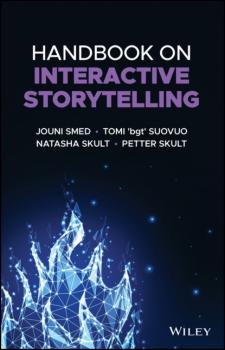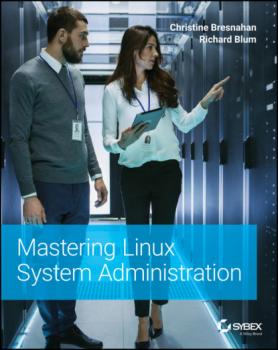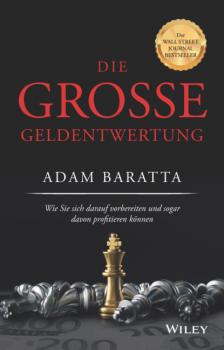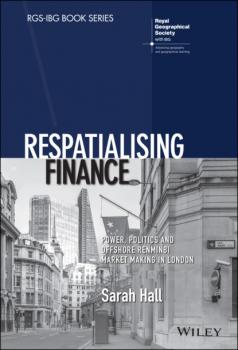John Wiley & Sons Limited
Все книги издательства John Wiley & Sons LimitedWestern Philosophy
The new edition of this celebrated anthology surveys the Western philosophical tradition from its origins in ancient Greece to the work of today’s leading philosophers Western Philosophy: An Anthology provides an authoritative guided tour through the great tradition of Western philosophical thought. The seminal writings of the great philosophers along with more recent readings of contemporary interest are explored in 144 substantial and carefully chosen extracts, each preceded by a lucid introduction, guiding readers through the history of a diverse range of key arguments, and explaining how important theories fit into the unfolding story of Western philosophical inquiry. Broad in scope, the anthology covers all the main branches of philosophy: theory of knowledge and metaphysics, logic and language, philosophy of mind, the self and freedom, religion and science, moral philosophy, political theory, aesthetics, and the meaning of life, all in self-contained parts which can be worked on by students and instructors independently. The third edition of the Anthology contains newly incorporated classic texts from thinkers such as Aquinas, Machiavelli, Descartes, William James, and Wittgenstein. Each of the 144 individual extracts is now followed by sample questions focusing on the key philosophical problems raised by the excerpt, and accompanied by detailed further reading suggestions that include up-to-date links to online resources. Also new to this edition is an introductory essay written by John Cottingham, which offers advice to students on how to read and write about a philosophical text. Part of th e Blackwell Philosophy Anthologies series, Western Philosophy: An Anthology, Third Edition remains an indispensable collection of classic source materials and expert insights for both beginning and advanced university students in a wide range of philosophy courses.
After the Past
Provides a unique and accessible understanding of Sallust and his influence on writing the history of Rome Gaius Sallustius Crispus (‘Sallust’, 86-35 BCE) is the earliest Roman historian from whom any works survive. His two extant writings chronicle crucial moments of a political, social, and ethical revolution with profound consequences for his own life and those of his audience. After the Past: Sallust on History and Writing History examines what it meant to write the history of contentious events—Catiline’s famous rebellion in 63 BCE and the war waged against the North African king Jugurtha fifty years earlier—while their effects were still so vividly felt. One of the first book-length treatments of Sallust in over fifty years, the text offers a comprehensive reading of Sallust’s works using the tools of narratology and intertextual analysis to reveal the changing functions of historiography at the end of the Roman Republic. Author Andrew Feldherr’s comprehensive approach examines the literary strategies used by Sallust and many of the most interesting and significant aspects of the historian’s accomplishment while advancing the study of historiography as a literary form, reconsidering its relationship to rival genres such as rhetoric and tragedy. Pursuing a focused and distinctive scholarly argument, this book: Provides a comprehensive approach to Sallust’s extant works Explores how Sallust helped his readers to reflect on their own relationship with their tumultuous past Contributes to understanding Roman conceptualizations of space and of writing Challenges the core assumption that literary historiography of the time period is essentially rhetorical nature After the Past: Sallust on History and Writing History is an accessible and useful resource for students of Latin literature and Roman history from the advanced undergraduate through professional levels, and for all those with an interest in historiography as a literary genre in Greco-Roman antiquity and in the literary history of the late Republic and triumviral period.
Think & Grow Rich - Ihr tägliches 10-Minuten-Programm zum Erfolg
Mit diesem Buch können Sie schnell und effektiv das größte Programm zur persönlichen Entwicklung aller Zeiten studieren und in die Praxis umsetzen. In nur zehn Minuten am Tag können Sie damit beginnen, die Erfolgsprinzipien umzusetzen, die mehr Millionäre und Top-Influencers beeinflusst haben als jede andere Leistungsphilosophie.<br> Ruhm? Reichtum? Mehr Einfluss? Sinnvollere Beziehungen? Sie können alles haben, was Sie sich im Leben wünschen, wenn Sie das Geheimnis entdecken, das in Napoleon Hills «Think & Grow Rich» («Denke nach und werde reich») enthalten ist.<br> Ursprünglich 1937 veröffentlicht, trug «Think and Grow Rich» mit seinen 13 Schritten zur Anhäufung von Reichtum dazu bei, die Weltwirtschaftskrise zu beenden. Es enthält den Schlüssel zu finanzieller Unabhängigkeit, harmonischen Beziehungen, Macht, Glück, Erfüllung und Seelenfrieden. Alle Formen des Reichtums können Ihnen gehören, wenn Sie bereit sind, den Preis dafür zu zahlen… und das heißt, zu DENKEN – um Ihren Geist zu erweitern, Ihre Gedanken zu kontrollieren und die Macht der gewaltigen geistigen Ressourcen, die Ihnen zur Verfügung stehen, zu nutzen, um Ihre größten Wünsche in ihre materielle Entsprechung zu übersetzen.<br> Wie Hill sagte: «Es macht keinen Sinn, ein so großes Leistungspotenzial zu haben, wenn man nicht etwas tut, um es in die Realität umzusetzen.» «Think & Grow Rich – Ihr tägliches 10-Minuten-Programm zum Erfolg» extrahiert die wichtigsten Prinzipien, Anweisungen und Geschichten aus Hills ursprünglichem, unbearbeitetem Meisterwerk und liefert aktualisierte, relevante Beispiele – in modernisierter, leicht zugänglicher Sprache -, so dass alle Leser, unabhängig davon, wie beschäftigt sie sind, von der zeitlosen Weisheit profitieren können, die in Hills Buch zu finden ist. Dem Originaltext hinzugefügte Aktionsbeispiele helfen den Lesern, die Lektionen der einzelnen Kapitel fachkundig anzuwenden.<br>
Information at War
A war’s outcome is determined by more than bullets and bombs. In our digital age, the proliferation of new media venues has magnified the importance of information – whether its content is true or purposely false – in battling an enemy and defending the public. In this book, Philip Seib, one of the world’s leading experts on media and war, offers a probing analysis of the role of information in warfare from the Second World War to the present day and beyond. He focuses on some of the thorniest issues on the contemporary agenda: When untruthful and inflammatory information poisons a nation’s political processes and weakens its social fabric, what kind of response is appropriate? How can media literacy help citizens defend themselves against information warfare? Should militaries place greater emphasis on crippling their adversaries with information rather than kinetic force? Well-written and wide-ranging, Information at War suggests answers to key questions with which governments, journalists, and the public must grapple during the years ahead. Information at war affects us all, and this book shows us how.
Fescue Toxicosis and Management
Fescue toxicosis continues to be one of the most devastating problems in forage–livestock agriculture. Because there is presently no cure, using the most up-to-date management and prevention approaches are crucial. The 2nd edition of this important guide presents an easy-to-understand description of this complex problem, along with recommendations that are practical for real farm use.
Respatialising Finance
RESPATIALISING FINANCE ‘In Respatialising Finance Sarah Hall uses the internationalisation of the Chinese Renminbi (RMB) to work through a sympathetic conceptual and empirical critique of prevailing analyses of International Financial Centres (IFCs). Her conceptual (re)framing stresses the politics, institutions and economics of IFCs and will be essential reading for all social scientists interested in the dynamism of contemporary finance and financial centres.’Professor Jane Pollard, Centre for Urban and Regional Development Studies (CURDS), Newcastle University, UK‘Through detailed study of Chinese RMB internationalisation and combining analytical insights from economic geography, sociology, and international political economy, Sarah Hall shows why offshore networks anchored in territories such as the City of London are both core to global monetary and financial landscapes, and provide a key terrain for state power and politics.’Professor Paul Langley, Department of Geography, Durham University, UK Respatialising Finance is one of the first detailed empirical studies of how and why London became the leading western financial centre within the wider Chinese economic and political project of internationalising its currency, the renminbi (RMB). This in-depth volume examines how political authorities in both London and Beijing identified the potential value of London’s international financial centre in facilitating and legitimising RMB internationalisation, and how they sought to operationalise this potential through a range of market-making activities.The text features original data from on-the-ground research in London and Beijing conducted with financial and legal professionals working in RMB markets and offers an original theoretical approach that brings economic geography into closer dialogue with international political economy. Recent work on territory illustrates how financial centres are not simply containers and facilitators of global financial flows – rather they serve as territorial fixes within the dynamic and crisis-prone nature of global finance.









